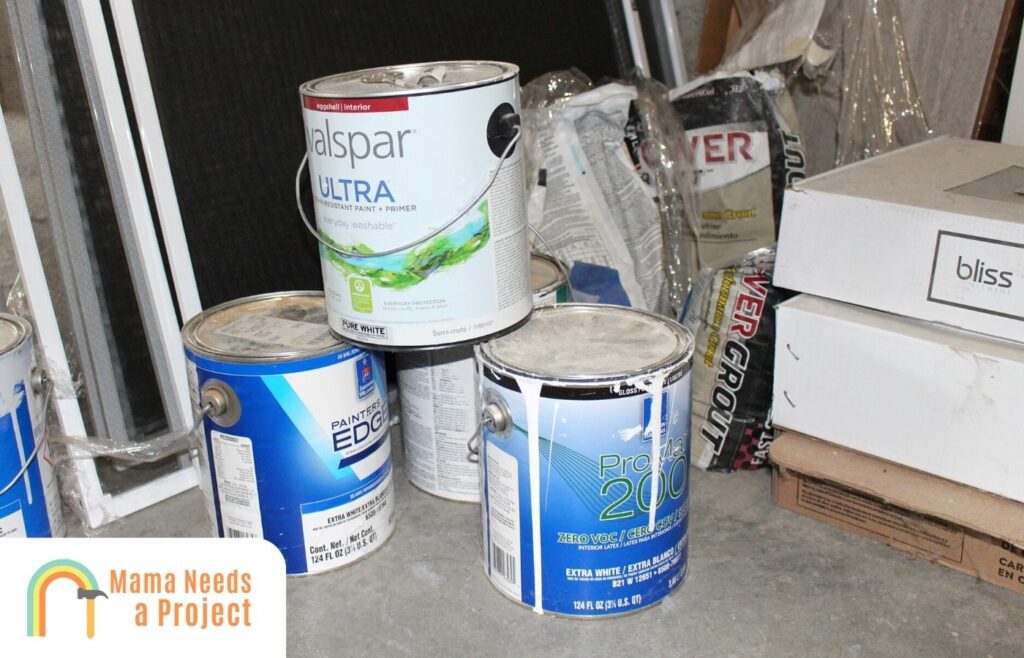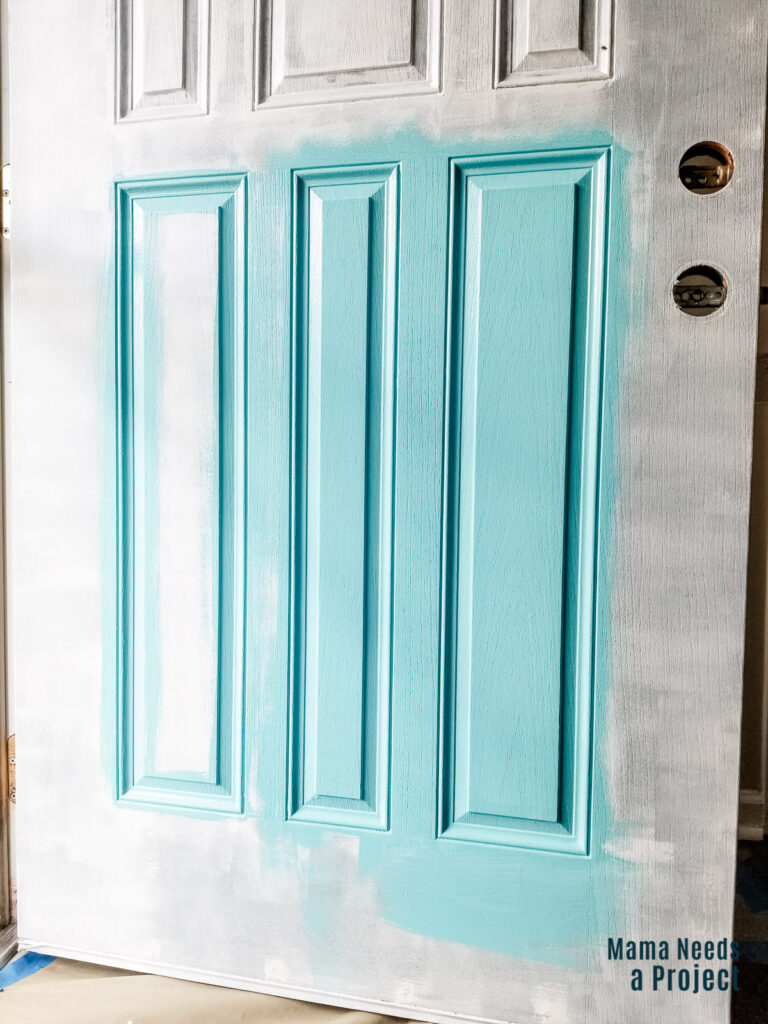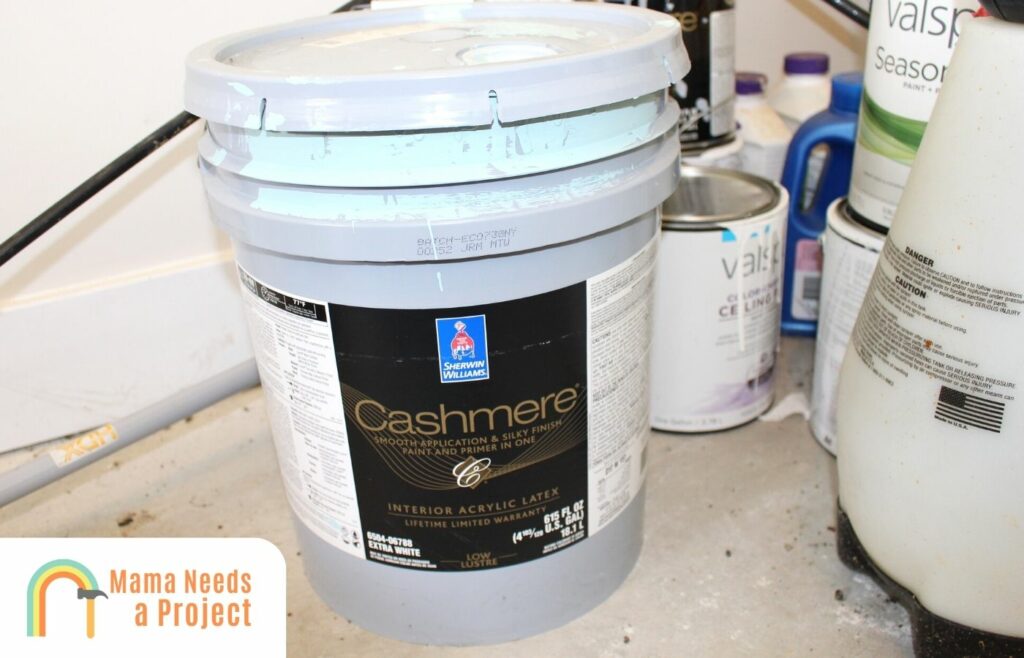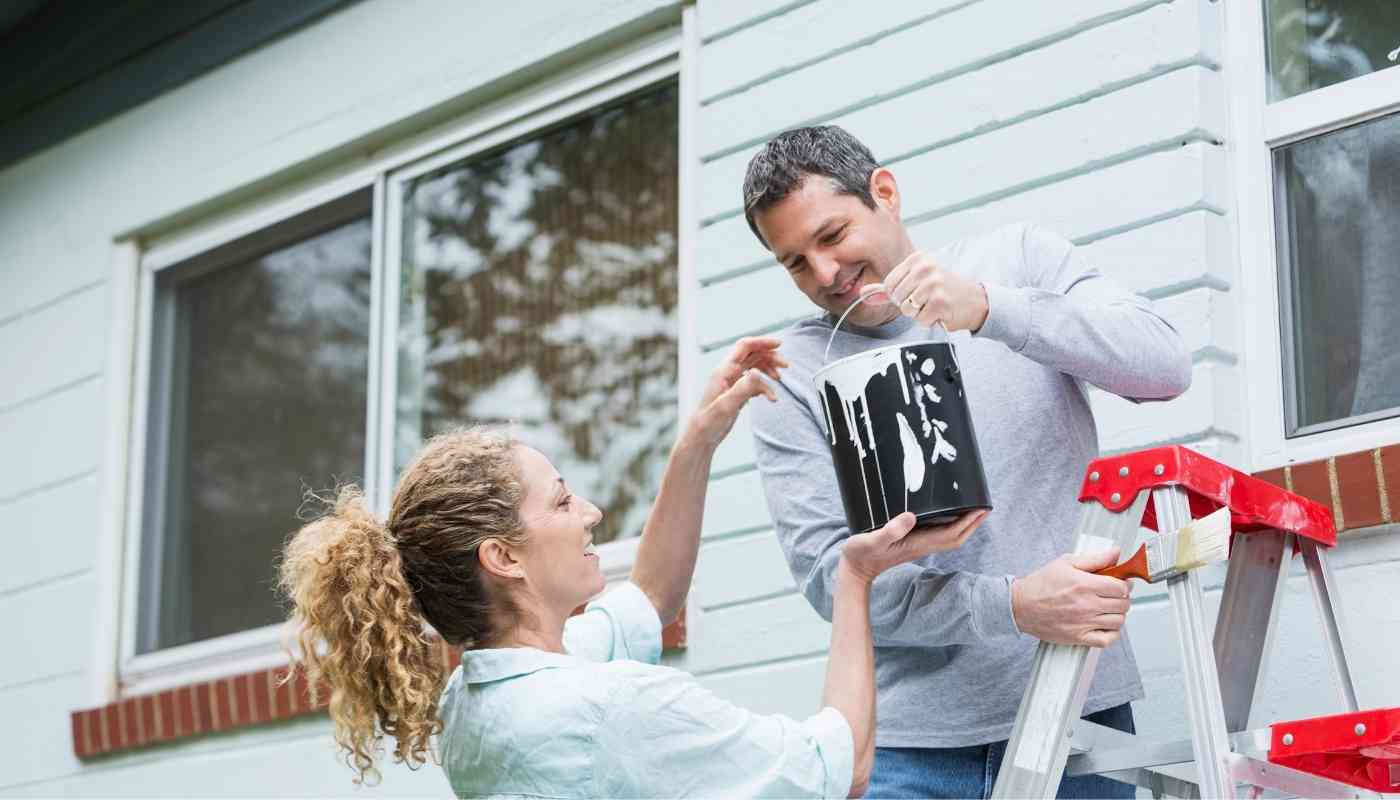Can You Use Exterior Paint Inside? Important Info! (2024)
When it comes to paint, there are several options available.
Interior paint, exterior paint, primers, latex paint, and more – it can be easy to get overwhelmed when making your choice.
If you already have some exterior paint handy you might be wondering, “Can you use exterior paint inside?” Let’s find out!
- It’s best to avoid using exterior paint inside because of the chemical makeup of exterior paints that can cause health problems.
- Before painting, check the paint can to understand the environmental impacts of the paint and follow any guidance or recommendations set by the manufacturer.
Can I Use Exterior Paint Inside?

You should avoid using exterior paint inside due to its chemical makeup that can be toxic to humans and animals.
Exterior paint is made to withstand weather and the elements which require harsher chemicals that can be toxic and potentially harmful.
Although it might look the same as interior paint, some critical differences can make the material dangerous to be around.
If you can avoid it, you should not expose the interior of your home to exterior paint.
Not only is exterior paint impractical in many ways, but some dangers come with this type of paint indoors.
Potential Dangers Of Exterior Paint Inside
Using exterior paints indoors can be dangerous for several reasons.
Below are some of the dangers you should be aware of before using exterior paint indoors:
- Off-gassing in the drying process can release toxic fumes
- VOC emissions worsen health problems
- Long-term VOC (volatile organic compounds) emissions
- Dizziness from the chemical fumes while painting
The main problem with using exterior paint indoors is the VOC levels it puts off.
VOCs are released into the air as the paint dries and can be extremely harmful to your health.
Prolonged exposure to VOCs has been linked to cancer, liver damage, kidney damage, and more – which is why you should always try to avoid them as much as possible.
Differences Between Interior and Exterior Paint
As the name suggests, interiors paints are best for interior painting while exterior paints are better for outdoor use. But why?
1. Weather-Resistance
This one is probably the most obvious, but exterior paint is better at weather resistance than its interior counterpart.
Wind, humidity, and other elements can damage interior paint much quicker than exterior paint.
Interior paints exist to sit on walls in controlled environments. They don’t have a chemical composition that defends against UV light, water, or freezing temperatures. When exposed, interior paints will fade and flake away very quickly.
On the other hand, exterior paints are made with all the qualities necessary to resist temperature changes and other conditions. They are tested to provide extreme weather resistance that interior colors don’t have.
2. Durability

Similar to weather resistance, durability is another big difference between interior and exterior paints.
Interior paints are excellent at hiding imperfections and providing an even coverage. However, they don’t last nearly as long as exterior paints.
Interior paint lasts quite a long time on interior walls under normal conditions. It can sit in a temperature-controlled environment for years and years without the need for a touch-up and withstands the occasional bombardment and scrubbing. However, outside, interior paint will fall flat when it comes to durability.
Exterior paint works to withstand constant torment from the weather conditions outside. It can experience turbulent winds or severe thunderstorms and remain intact. It’s much more durable than interior paint on the outside, meant to last for years in any conditions it faces.
3. VOCs
VOCs, also known as volatile organic compounds, are particles in the paint that release toxic fumes.
These fumes can be deadly if you breathe them in too often or for too long, hence the reason you should never use exterior paint inside.
Interior paints exist to for indoor use surrounded by living people. They have VOCs that release fumes, but the levels are low and not enough to be dangerous. Some colors even have no VOCs at all, which I prefer. They are safe to use on your walls, cabinets, and other projects as long as you allow airflow in the painting process.
On the other hand, exterior paints are made with high levels of VOCs to help the color and paint withstand outdoor conditions.
You should not use exterior paint indoors because of the harmful chemicals and toxic fumes released that pose potential health hazards when applied indoors.
4. Adhesion
Exterior and interior paints have excellent adhesion to whatever surface they sit on. However, they aren’t quite the same.
Interior paints stick well to solid walls, wood, metal, and other even surfaces. They provide an even coat that can last for years without any peeling or flaking.
However, exterior paint adhesion is much stronger thanks to the high levels of VOCs.
The VOCs in exterior paint help it to meld with the surface it’s applied to, creating a bond that is much harder to break.
This is why exterior paint can last for years outside without any touch-ups, even in the most extreme weather conditions.
5. Dry Time
Finally, there’s quite a difference in the dry time.
Exterior paints tend to dry slightly faster than interior paints for a few reasons.
Interior paints rely on airflow to dry, which can take much longer than outdoors, in the natural sunlight.
Exterior paint can dry as fast as 30 minutes to an hour in the sun, while interior paint can take a few hours or even overnight to fully dry.
But there are many other factors that can play a role in how long it’ll take your paint to dry. For example, the humidity, type of paint, and temperature will all play a massive role in how long it takes paint to dry.
Check out the video below for more info about both types of paint!
Can I Use Exterior Paint In My Garage?

A garage is another part of the house you may want to paint, but what type of paint should you use?
It’s a confusing area to consider. It feels like an indoor spot, but it’s also partially outside at the same time.
It makes sense to use indoor paint, but it also seems like exterior paint could be a functional option. What’s the right choice for your garage?
Although it seems correct, exterior paint should never go in your garage. It’s still an indoor area and could leak VOCs into your home. Every single time you head into the garage, you and your family members will be exposed to the paint which isn’t good for anyone’s health.
You’re better off going with interior paint for your garage.
Before painting your garage, ensure that the temperature is mild and humidity levels are low so that the paint can dry evenly and quickly.
Wondering what type of paint to use on your projects? Check out my Valspar vs Sherwin Williams comparison for more details!
Can I Mix Interior And Exterior Paint?
Let’s say you have some interior paint, but you don’t have enough to cover the entire surface.
If you have leftover exterior paint, it might be tempting to mix the exterior with the interior paint. However, this isn’t advisable, even for the smallest finish on a wall. You should not mix exterior and interior paint for any reason.
Here’s why:
- Variation in base: There is a potential that one paint may have an oil base while the other has water as its structural component. These won’t mix and will cause problems in the future.
- Difference in ingredients: Exterior and interior paints are formulated with different ingredients, from the adhesion qualities to the colors.
- Change in chemicals: There are stronger chemicals in exterior paints which will not mix well with interior paint.
Instead of trying to mix paints, your best bet is to head to a local hardware store and purchase a new can of paint for your interior or exterior wall.
Can I Use Interior Paint Outdoors?
We’ve clarified that exterior paints can’t go inside.
But can interior paint be used outdoors?
Technically, you can use interior paints outdoors, However, they lack the proper composition to withstand the harsh nature of the outside world. The color will fade and peel much faster than exterior paint.
If you want the paint to last a long time, don’t use interior paints on your exterior walls or surfaces.
Check out this guide to understand how much a gallon of paint weighs!
Can You Use Masonry Paint Indoors?
Just like with exterior paints, I don’t recommend using masonry paint indoors. Masonry paints are very similar to exterior paints in that they contain the harsh chemicals and VOCs that can be detrimental to your health.
Tips to Keep in Mind When Painting
1. Keep the Room Well Ventilated
No matter if you’re painting and interior room or outdoor surfaces, always make sure the area is well ventilated.
Whether you’re using a brush, roller, or sprayer, paint fumes can quickly fill up a small space.
If you’re working in confined spaces or a room with little to no airflow, the fumes can become overwhelming, and you may start to feel dizzy or lightheaded.
To avoid this, open all the windows and doors in the room, and set up a fan to help circulate the air. If you’re painting outdoors, try to work in the shade on a breezy day.
2. Use the Right Type of Paint
Oil based paints are great for durability, but they can be difficult to work with.
Water based paints are easier to apply, but they don’t last as long.
The type of paint you use will also depend on the surface you’re painting.
For example, if you’re painting a wall in your home, you’ll want to use an interior paint.
If you’re painting a deck or other outdoor surface, you’ll need to use an exterior paint.
Final Thoughts on Can I Use Exterior Paint Inside?
If you are an inexperienced painter, you may not be aware of the differences between interior and exterior paints.
Although they look similar, you should not use exterior paints inside.
It’s not created like interior paint and contains more chemicals and VOCs. These items can be harmful to humans and animals in your home.

